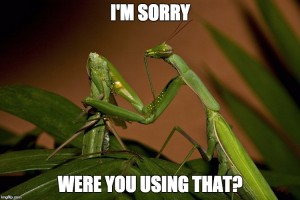Doesn’t it feel as if some of the most powerful stakeholders are trying to undermine our efforts with children? Often, the ones that complain the loudest about a lack of success (as they’ve decided to measure such a thing – inaccurately and on the cheap) are behind measures that prevent the results that they, themselves, are demanding.
Underfunded? Yes. Undervalued? Yes. Misunderstood? Yes. Disrespected? Yes. All three?
An absolute and frustrating, yes.
But for a moment, let’s get over it and take a reflection break. After all, their obstruction should not prevent our improvement. Don’t worry, we’ve got time. Those problems aren’t going anywhere. Trust me. Instead, let’s think for a moment about “a house divided.”
Consider the following from a 2011 study on school micro-politics, by Donald Brosky:
“Teacher leaders related how they encountered resistance from other teachers in their daily interactions. Resistance took the form of non-support from colleagues who blocked progress of those who took on leadership roles or who attempted to present new ideas. Taking on leadership roles sometimes resulted in being ostracized by colleagues. The egalitarian nature of teaching was identified as an impediment to teacher leaders’ abilities to step forward to lead because of the idea that teachers were all equal and those who tried to lead challenged teacher solidarity. Similarly, teacher leaders attempting to lead were interpreted as trying to get ahead for personal gain and position.”
In other words, in spite of the sharks that continue to swim and hunt public educators, we are too busy eating each other to notice.
What Brosky cites can be anecdotally confirmed by thousands of leaders around the country. The internal micro-political struggle found in many of America’s schools serves as an exhausting and time-honored obstruction for talented teacher-leaders, discouraging them from using their priceless skill.
Actually leading. Especially on issues around teaching and learning.
I’ve written many times before on the impossible task of the principal as the alpha and omega instructional leader. This certainly doesn’t help.
So, the next time a teacher at your site pursues an advanced certification, is rewarded a grant, or wins a prestigious award, just sit back and watch, noting observable blatant and subtle behaviors, comments, and attitudes. What message is being sent through actions, body language, and the actual words being exchanged?
Personally, I don’t think Bon Appetit should ever be included in that language.









